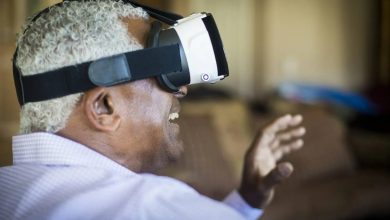Understanding Phantom Fat Syndrome: A Psychological Barrier After Weight Loss
How Weight Loss Can Affect Body Image and Mental Health

Watan-Obesity surgeries help in losing a significant amount of weight, leading to a healthier lifestyle and a renewed sense of self. However, some patients fail to recognize this positive transformation.
Contrary to their expectations, they don’t feel happiness or accomplishment despite noticeable physical changes and the loss of many kilograms.
-
A Recent Study Debunks the Myth of Healthy JuicesFebruary 14, 2025
They develop a sense of feeling heavier, and may see themselves as the same size as before. They show extreme caution when moving through tight spaces or navigating revolving doors, and are afraid of bumping into shelves while shopping. This phenomenon is referred to as the “phantom fat syndrome.”
What is Phantom Fat Syndrome?
It is a psychological phenomenon where individuals who have lost a significant amount of weight continue to perceive themselves as overweight and suffering from obesity, despite visible changes in their bodies. This condition is expected to increase with the rise of weight-loss surgeries and the popularity of rapid weight-loss drugs like Ozempic and Monjaro.
Researchers describe the “phantom fat syndrome” as a form of body-mind disconnection. Despite obvious and rapid weight loss, the mind resists acknowledging it.
Dr. Rachel Goldman, a pediatric and adolescent medicine specialist, explains that this phenomenon is linked to how our brains work and the images stored in them over years. She added, “Unfortunately, people who have suffered from obesity for many years and then experience rapid weight loss may not be able to adjust as quickly as their bodies do. While they see a fitter person in the mirror, their minds still recognize the larger version or may be reluctant to adopt a new image, fearing it won’t last.”

The Complex Relationship Between Our Physical and Psychological Selves
Many studies have revealed delayed body image recognition after weight loss. One such study published in the “Clinical Nursing” journal in 2018 found that many women couldn’t recognize or accept their new bodies even 18 to 30 months after weight-loss surgery.
Another study conducted in 2004 by Joshua Heraboski, a psychologist studying body image, linked the phantom fat phenomenon to the concept of “phantom limb,” where individuals who have lost a limb feel as though the missing limb is still there, causing them pain or itching.
In a study published in the journal “Body Image,” Heraboski and his colleagues interviewed 165 women. The researchers found that women who had previously been overweight reported negative self-perceptions, dissatisfaction with their appearance, and an ongoing preoccupation with their body image, which led to lower self-esteem and life satisfaction—similar to the feelings experienced by women who were currently overweight.
A Form of Body Dysmorphia
Experts also point out that the phantom fat syndrome is a form of body dysmorphic disorder, as it involves people obsessing over one or more perceived flaws in their physical appearance, often flaws that are not noticeable to others.
They may engage in obsessive behaviors like constantly checking their appearance in the mirror due to insecurity, seeking reassurance, or comparing themselves to others in response to their constant fears about appearance. These behaviors often lead to emotional and psychological struggles that affect their relationships and social and professional lives.
Why Does Phantom Fat Syndrome Occur?
Our self-image is shaped over years of personal experiences, societal standards, and other factors. Thus, external changes and weight loss may not address the core emotional struggles or improve how we perceive ourselves.
Fitness coach Kevin Richardson explains on his personal blog, “For many men and women, weight loss is just part of the battle, and by no means a complete victory in the war of self-improvement.”
Kevin mentions that the painful scars created by living in an unacceptable body socially, or one that is responsible for low self-worth, can persist long after weight loss, especially as obesity remains one of the most enduring social stigmas in many societies.

How to Overcome Phantom Fat Syndrome?
Adapting to a new body shape can take time, and you can maintain your emotional and mental health after weight loss by:
-
Cognitive Behavioral Therapy (CBT): This helps individuals recognize distorted perceptions and align their inner thoughts with their body image. A 2022 study by the University of Messina in Italy found that loose skin or other skin texture issues could be sources of negative thoughts after weight loss and negatively affect body image and self-esteem. The study recommended psychological therapy and consulting mental health professionals post-surgery to positively accept changes.
-
Mindfulness and Stress-Relief Techniques: Self-care practices like mindfulness, meditation, and yoga help increase awareness of emotions and thoughts, as well as reduce stress and anxiety, which often worsen phantom fat syndrome symptoms.
-
Acknowledging and Appreciating Achievements: Try to enjoy and take pride in your achievements, such as your current ability to climb stairs differently, easily tie your shoes, participate in activities with your kids, or even run after your pet in the park.
-
Trying New Activities: Choose an activity you couldn’t do before because it was difficult or impossible, such as running.
-
Comparing Before-and-After Photos: Take recent photos of yourself and compare them with your old ones to help your brain reshape your self-image.
-
Appropriate Clothing: You may need to update your old clothes to fit your new body shape, with styles, colors, and sizes that suit you. Ask your friends for help when shopping to find clothes that enhance your positive feelings.
Finally, be kind and patient with yourself by confronting negative thoughts that reinforce shame and self-criticism and replacing them with positive self-affirmations. Surround yourself with positive people and remember that your self-worth is not defined by the size of the pants you wear.






